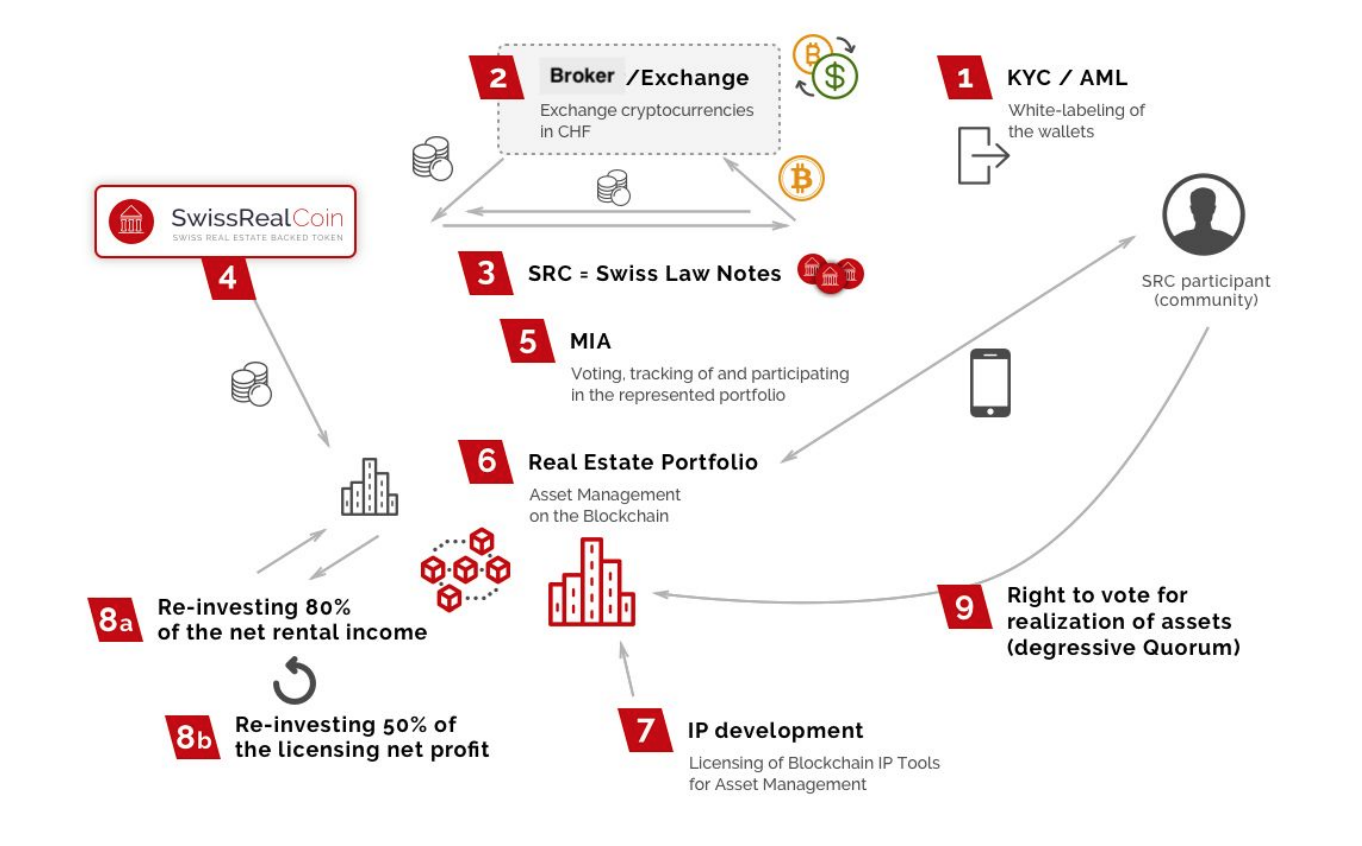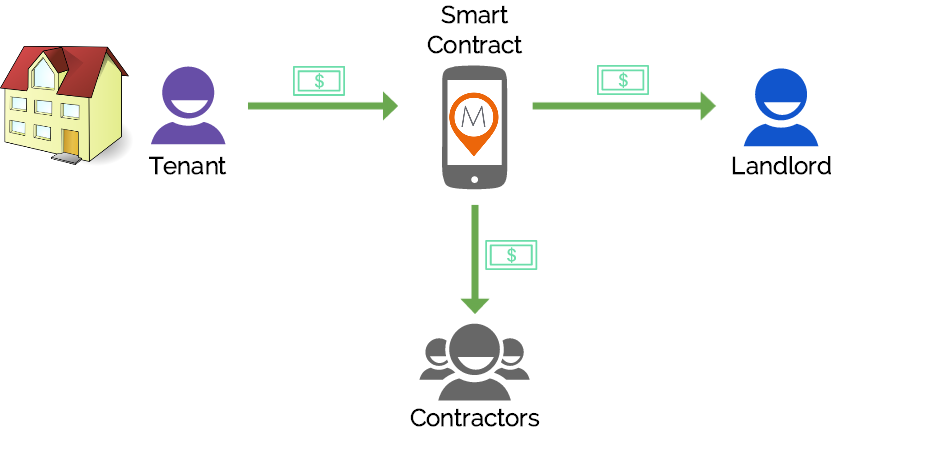Blockchain, the technology underlying cryptocurrencies such as Bitcoin, has entered many industries including real estate where it promises increased efficiency and transparency.
A blockchain is a digitized, distributed ledger that immutably records and shares information. By recording and combining transactions into a decentralized, secured ledger system, it creates a “chain” of chronological data that no one party can control or alter. The value of blockchain lies in the system’s ability to authenticate and track transactions in real time without the need of a third party.
In the real estate business, blockchain technology has been used for multiple applications.
Online real estate marketplace
Blockchain technology introduces a new way to trade real estate, enabling faster, more efficient and cost-efficient transactions. By tokenizing properties, these are turned into liquid assets and can be traded easily much like stocks on an exchange. Blockchain also allows for fractional ownership, enabling multiple investors to acquire a property and lowering the barriers to real estate investing.
For instance, ATLANT is developing a platform that uses blockchain technology to facilitate real estate and rental property transactions. ATLANT allows sellers to tokenize assets, essentially handling it like a stock sale, and liquidating that asset through a token sale using the platform. The collected tokens can be exchanged for conventional currency, with buyers owning a percentage stake of the property.
100Mio CHF Swiss ICO
Meanwhile, Swiss startup Crypto Real Estate is looking to put real estate assets onto the blockchain to bring transparency, data integrity and cost efficiency to real estate asset management and transaction.
The company is building a platform that will be powered by the so-called SwissRealCoin (SRC), a token backed by a portfolio of Swiss commercial property as well as other collateral including the firm’s technology platform. SRC is meant as a low-volatility and high-security token.

SwissRealCoin – How it works
Crypto Real Estate said it will not charge any management fees, taking its profits from the actual property management instead. The startups is looking to raise up to CHF 100 million in an initial coin offering (ICO) set to begin in the coming months.
Property management and land registry
Real estate property transfers can be registered on a blockchain, enabling auditability for external stakeholders and lowering bureaucracy times and costs. Blockchain can also be used to record land titles and facilitate connection between public administrations and private stakeholders for information and data sharing.
When a transaction is recorded on a blockchain, the identity of the seller and buyer, the unique identifier of the asset and the time stamp associated with the transaction are guaranteed and cannot be modified. In this particular scenario, blockchain allows to dramatically cut the traditionally lengthy process of recording and transferring titles, with the added benefit of full transparency.
The UK government has recently announced plans to move the country’s land registry to blockchain by 2022, under a project named Digital Street. Sweden, Ukraine, Dubai and the Republic of Georgia are all reportedly trialing blockchain.
Blockchain can also be used to help landlords and property managers manage their property portfolio much more easily. For instance, Smart Tenancy Contract is online software that uses a system of smart contracts to enable quicker reconciling cashflow transactions for rent payments and property expenses all the while providing full transparency and control for overseeing and approving property expenses.

Smart Tenancy Contract
In the system, a smart contract replaces the traditional tenancy agreement between a landlord and tenant. The smart contract features the key attributes of the tenancy such as property details, tenant details, rent amount and payment frequency. It is digitally signed by both parties and published on a blockchain. The smart contract can be programmed to automatically debit the tenant’s account every month to pay rent.
Featured image via Wikimedia.
The post Real Estate Meets Blockchain appeared first on Fintech Schweiz Digital Finance News - FintechNewsCH.
Comments